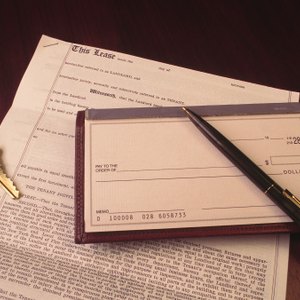
Escrow accounts are set up at closing and held by your mortgage company to pay for property taxes and other expenses related to your home, like homeowner’s insurance and Primary Mortgage Insurance. A portion of your monthly mortgage payment funds the escrow account. Due to Federal laws and mandates, lenders must refund the overage if you have a change in your tax liability or insurance expenses. Therefore, it is relatively easy to obtain an escrow refund if there is an overage in your account.
Consider Your Circumstances
You should be entitled to request a new analysis of your escrow account, and possible to request a refund, if there has been change in your tax property tax liability or insurance expense over the last few months. Examples of changes include: lower tax rates from your taxing authority, new property tax exemptions, decreases in your tax assessment and changes in insurance agent resulting in lower premiums. Your mortgage servicer must analyze your escrow balance at least once a year, but analysis is based on prior year’s payments from your escrow.
Gather Your Documentation
Your mortgage company will not conduct a new analysis based on verbal communication of your lower tax obligations. Your lender will require proof of your claims to ensure accurate estimates that will save you from higher mortgage payments, penalties and fees. Examples of documentation are letters from your tax assessor communicating changes in tax liability, recent tax bills and new insurance policies. When providing documentation for your new escrow analysis, prepare a detailed letter, even if lender does not ask you to do so. The representative you talk to is rarely the representative that is performing the new analysis and you can explain your unique situation better than a third party. Sending an explanation will help prevent the need for follow up communication that will delay your refund.
Ask for an Escrow Check
Since mortgage companies perform escrow analysis annually, it could take several months to get a refund. However, notifying your lender and requesting a new analysis will expedite your refund. Ask your lender to provide a due date for the completion of the new analysis and follow up with your lender if they have not met the deadline. Request the name and number of the customer service representative you are dealing with. This will aid you and the lender, should your analysis lag behind the stated due date. Be prepared to wait, it can take weeks to obtain a new analysis and a refund.
Things to Consider
Bear in mind that an incorrect calculation of your escrow requirements could result in a negative escrow balance, so it's important to get this right. Take the time to audit your mortgage company’s new escrow calculation. Escrow analysis is usually based on prior year’s tax payments, not future estimates. This nuance often leads to errors in the new calculation. Improperly calculated escrow balances could lead to serious problems later.
References
- American Homeowners Association: Escrow Refund
- Elevations Credit Union: Understanding Your Escrow Account
- Cornell Law School. "Escrow." Accessed March 15, 2020.
- Los Angeles County Consumer and Business Affairs. "Escrow." Accessed March 15, 2020.
- Consumer Financial Protection Bureau. "What Is an Escrow or Impound Account?" Accessed March 15, 2020.
- The People's Law Library of Maryland. "Rent Escrow: When the Landlord Fails to Make Repairs." Accessed March 15, 2020.
- California Department of Business Oversight. "Online Escrow Fraud Questions and Answers." Accessed March 15, 2020.
- Consumer Financial Protection Bureau. "Mortgages Key Terms." Accessed March 15, 2020.
- FindLaw. "Connecticut Security Deposit Laws." Accessed March 15, 2020.
Tips
- When providing documentation for your new escrow analysis, send a detailed letter, even if lender does not ask you to do so. The representative you talk to is rarely the representative that is performing the new analysis and you can explain your unique situation better than a third party. Sending an explanation will help prevent the need for follow up communication that will delay your refund.
- If you've had changes to your property tax liability or insurance premium over the last few months, you should request a new analysis to obtain an escrow refund. Examples of changes include: lower tax rates from your taxing authority, new property tax exemptions, decreases in your tax assessment and changes in insurance agent resulting in lower premiums.
- Your lender will require proof of your claims to ensure accurate estimates that will save you from higher mortgage payments, penalties and fees. Examples of documentation are letters from your tax assessor communicating changes in tax liability, recent tax bills and new insurance policies.
Warnings
- Take the time to audit your mortgage company's new escrow calculation. Escrow analysis is usually based on prior year's tax payments, not future estimates. This nuance often leads to errors in the new calculation. Improperly calculated escrow balances could lead to serious problems later.
Writer Bio
Shaun Fowler is the author of a personal finance blog. He works full-time as a financial analyst while completing a Master of Business Administration in accounting.

